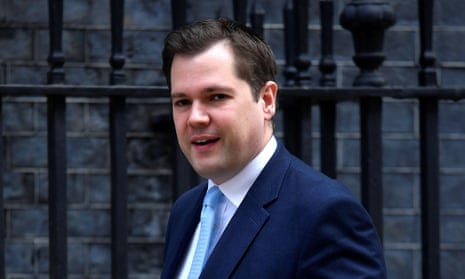Two of the hotels block-booked to house rough sleepers during the pandemic have ceased doing so in preparation for returning to regular business, sparking concern about the fate of thousands of homeless people who have been put up in hotels by the government for almost three months.
Charities have warned that there is still no clear plan from the government on how hotel residents will be rehoused. A senior member of staff at St Mungo’s, one of the charities leading the Everyone In initiative, said that if they return to the streets “people will die”.
Unless officials waive a restriction on foreign nationals with a limited immigration status known as “no recourse to public funds”, about half those currently housed could end up back on the streets, charities told the housing secretary, Robert Jenrick, in an open letter signed by around 100 homelessness organisations.
“We are dismayed that extended housing support will only be available to those who qualify for welfare benefits,” the letter, coordinated by the campaign group Citizens UK, said.
“In some areas this will result in a large number of people, up to 50% of those currently housed, returning to the streets at a time when homelessness services, such as day centres and night shelters, remain closed. This is a national catastrophe in the making, which we feel could inadvertently undo all the good work the government has done on this important issue.”
Neil Parkinson, a senior case worker with the homelessness charity Glass Door, added: “Migrants who live and work here legally are often not able to access housing support. They will find a huge challenge to access the private rental sector, especially if they have lost their jobs.”
Since lockdown was announced in March, more than 5,400 rough sleepers have been placed in Holiday Inns, Travelodges and Ibis hotels all over of England. Similar schemes are in operation elsewhere in the UK. But there has been growing concern about what happens once initial funding runs out.
Many hotels were only booked by local authorities for three months and without a further guarantee of funding, some councils will be forced to find alternative housing for rough sleepers imminently.
Dominic Williamson, an executive director at St Mungo’s, which has supported about 2,700 rough sleepers during lockdown, said the scheme had been “a tremendous success” which could be reversed if new housing was not found swiftly.
“Without further financial help, councils tell us they may not be able to keep people in hotels for much longer. It is my very real fear that people will die,” he said.
Staff working with rough sleepers at the two hotels in east London that have now stopped accommodating rough sleepers said around 70 people had been housed in the two buildings. Around 20 residents were moved to another hotel in Hammersmith; charity staff who had been working with the hotels’ inhabitants were told by officials that nobody had ended up back on the street, but they said this was difficult to verify and they were uncertain about where the rest had been rehoused.
Several other London hotels are due to close in the next three weeks, but staff have expressed concern that they will not be able to find alternative suitable accommodation for inhabitants.
A spokesperson for the Ministry of Housing, Communities and Local Government said:“We’ve been clear that councils must continue to provide safe accommodation to all vulnerable rough sleepers and support those moving on from emergency accommodation in the right way, to ensure their needs are met.
“Our new rough sleeping taskforce is ensuring that as many people as possible who have been brought in off the streets in this pandemic do not return to sleeping rough.
“To help achieve this, we have provided £3.2bn for councils to help meet Covid-19 pressures on top of specific funding for rough sleeping services. And we have accelerated plans– backed by £433m – which will deliver 6,000 additional homes for former rough sleepers across the country.”
